- Home
- Hugh Howey
Resist Page 10
Resist Read online
Page 10
Morel laughed. “Preposterous! This is my planet. Come now, man, you must see that it has to be so. For seven and a half years I’ve been in charge here, with no real help from the robot, and—”
“Perhaps,” Upwright said, “the time has come for a change. A clearing out of the dead wood, so to speak. A great rethinking of the political economy on VZ-61a.”
Morel turned bright red. He smacked a fist against the palm of his other hand. Repeatedly. When this failed to have the desired effect—or any visible effect at all—he reiterated, “Preposterous! There can be no debate about this. I am the sole commander of all I survey.”
“But—and again, I ask with all due respect—why?”
“Why?” Morel asked. “WHY? Well, sir, because—because—because of the oldest principle of governance known to man!”
Upwright pursed his lips. “Which is what, exactly?”
“I was here first!”
Upwright chuckled a bit, but said nothing. They continued their stroll in silence, for a while. Eventually they returned to the place where they’d started from—the gates of the palace—where they stood for some time in perfect silence, regarding each other. Morel finally turned to the newcomer and gave him the slightest of bows. “There you have it. I’m glad we came to an understanding.” Morel had always considered silence to imply consent. Especially the permanent sort of silence he’d formerly imposed on those who challenged his authority. “I think,” he said, “that we should have a parade tomorrow. Yes, a parade. Everyone loves a good parade,” he mused aloud. They were so very useful for demonstrating who was in charge, and who was under control.
Upwright opened his mouth as if to speak, but Morel hurried to fill the vacuum.
“I’ll even allow you to participate. Yes, yes, I think that’s exactly what will fit the bill, here. I herby formally permit you to march in tomorrow’s parade. Now, now, before you say anything—”
“Ahem,” Upwright said. “I was about to accept your kind offer.”
Morel’s brow clouded. “You were.”
“Indeed,” Upwright replied. “I wouldn’t miss your parade for the world.” And with that he walked away, laughing a bit under his breath.
“Well,” Morel said, his overheated brain working very hard. “Well. Good, then.”
IT PROVED A fine morning for a parade. At the very least, it didn’t rain, and the temperature never fell below freezing. On VZ-61a, you took what small victories were vouchsafed you by the elements. Morel took his time dressing. He found he was oddly nervous, fluttering with a sort of stage fright he hadn’t felt since his first days doing press events as a young dictator. That was so long ago, now. Back before he had all the reporters fed to hyenas.
He’d attended hundreds of these parades, of course. He knew exactly what to expect. Yet the fact that today there would be an audience—for the first time in his exile—sent tremors of excitement and dread running through him until he was all atingle.
He picked his favorite two sabers, and rolled his hat between his hands endlessly, trying to give it the perfect shape. When Martin-8 came to tell him the parade was ready, Morel stuck out his chin, adopted his well-trained swagger, and headed down to the stands feeling almost giddy.
The parade began as soon as he’d taken his seat. There was no immediate sign of Upwright, but Morel supposed the newcomer might simply wish to make a dramatic entrance, or could still be working on his parade float. He hoped it would be tasteful—perhaps a ten-meter long display of roses spelling out Morel’s name, or perhaps Upwright would come out dressed in sackcloth and tear at his hair while making a public apology for his remarks that had challenged Morel’s rightful place as ruler of VZ-61a.
Nothing too fussy, of course.
Morel nodded approvingly as Martin-8 came around the corner, leading a wooden mockup of a Megalodon M-99 missile carrier, a weapons system Morel had always adored for its ability to render cities into rubble with a minimum of user training. He clapped politely as Martin-8 rushed around the block and returned driving a staff car flying a giant flag bearing Morel’s coat of arms. He feigned a slight yawn as Martin-8 made its third trip, this time marching with one arm up in a salute.
Where the devil was Upwright? Morel frowned and peered around the square, looking for any sign of the frankly obstreperous fellow.
Then the newcomer did arrive, and Morel nearly had a fit.
Upwright had not put on a fancy costume. Nor had he bothered creating an imaginative yet decorous float for the parade. Instead he had simple written a slogan on a piece of cardstock, mounted it on a wooden pole, and marched forward thrusting his sign in the air, chanting the same message out loud.
The message was simple: DOWN WITH MUSTACHIO’D OPPRESSORS.
But far, far worse than this—he had recruited Martin-8, the robot, to carry a similar sign, and to chant along with him. “Down with muztachio’d oprezzorz!”
Morel’s jaw fell open. His blood pressure soared. One of his sabers fell off his belt and clattered under the reviewing stand.
The two of them, upstart and robot, marched around the corner. Almost instantly, Martin-8 reappeared, this time holding a very large wreath of cunningly worked flowers in the colors of Franz Morel’s nation, which the robot presented to the dictator with as graceful a bow as his mechanical limbs permitted.
Then Martin-8 rolled around the corner—and came back at Upwright’s side. This time they carried an effigy with a very poorly drawn-on mustache and beard, hanging from a pasteboard gibbet.
Morel’s left eye started to twitch alarmingly.
Martin-8’s next float was themed on Morel’s famous victory over the potato farmers of Yuziristan. One of his more flawless performances as a military commander. The float depicted a trio of farmers throwing down their pitchforks, while a flattering image of Morel pointed down at them with an imperious finger from the hatch of a main battle tank. The whole thing was made of dyed ostrich feathers that fluttered magnificently in the breeze.
Then Martin-8 disappeared around the corner again. Only to return with Upwright, both of them carrying shoes in their throwing arms.
“Enough!” Morel screamed. “Stop!”
“What’s the matter, Morel?” Upwright sneered. “You can’t handle the sight of citizens expressing their right to free speech?”
“Speech?” Morel shouted, aghast. “Free?” He shook his head in utter incomprehension. “Rights?”
“I’ll take that as a no,” Upwright announced. He paused for a moment to put his shoe back on.
“And you—Martin-8—you, you traitor, you apostate, you—you—”
“I beg your pardon, zir,” Martin-8 said. “Have I dizpleazed you?”
“You betrayed me,” Morel said. “After seven and a half years, I assumed we were simpatico. I assumed we had a rapport. I assumed you were my friend, you bucket of lowest bidder-assembled parts!”
“Zir,” Martin-8 said, “many apologiez. However, it iz part of my programming to zerve all inhabitantz of VZ-61a equally. I cannot refuze an order from Mr. Upwright, any more than I can refuze an order from yourzelf, unlezz zaid order contradictz the termz of your exilez.”
Morel couldn’t believe it. He couldn’t hold it in his head at all. He blinked rapidly, as if this was all an illusion and it would simply go away any moment now.
It did not.
“I … I forbid it,” he said. “I forbid this vulgar display. I forbid you from participating in any more acts of disobedience,” he said.
He had been speaking to Martin-8, but Upwright lifted his chin and said, “Ha.” Then he stamped one very narrow foot.
Morel sputtered in rage. Utter, nonverbal rage.
“In that case,” Upwright said, “then you give me no choice. Martin-8, I’d like to make a statement.”
The robot took out a pad of paper and a tiny, well-sharpened pencil.
“As of this moment,” Upwright said, “I declare the formation of the People’s Revolutionary
Party of VZ-61a. Too long have the people of this world toiled under the yoke of the lunatic oppressor Francis Morel.”
“Franz,” Morel interjected. It should come as little surprise to anyone that he hated having people get his name wrong in official pronouncements.
“Leave it as is,” Upwright told the robot.
Morel fumed. Soundlessly.
“The People’s Revolutionary Party will not rest until the madman Morel has been removed from office, and preferably from this life. Of course, every revolutionary party needs a president. I nominate myself as president pro-tem, until such time as a free election can be held. Martin-8, this is the point where you say, ‘seconded’.”
“Zeconded,” the robot dutifully zaid. Said.
“The motion is carried,” Upwright pronounced. “Now. Come with me. There is a great deal of work to be done.” He turned on his heel and headed for the door of the façade building across the street.
The robot followed.
Up in the reviewing stands, Morel shook and quivered and steamed. He simmered with rage, in almost complete silence.
He boiled with anger, without making a peep.
He grew as brightly red as a ripe tomato, and sweat popped out of his forehead, dripping across the huge, prominent vein that protruded there. Quietly.
Then he screamed his lungs out.
MOREL SPENT A fitful night full of restless dreams, only to wake, as usual, in his enormous bed. As was his wont, he called for Martin-8. It was time for breakfast.
For a very long time, perhaps as much as a quarter of an hour, the robot did not come. Morel pulled the blankets up to his chin. Perhaps the horrible Upwright had subverted the machine. Perhaps the newcomer had disassembled the robot—how terrible that would be—Morel would be forced to cook his own eggs. To brush down his own uniforms. And who would march in his parades?
When the door did open—and the robot entered, as discreetly as ever—Morel felt a palpable sense of relief trickle down his spine. Martin-8 had a silver tray balanced in one mechanical claw, and when it lifted the lid to reveal three rashers of bacon and a jeroboam of champagne, well, it was almost like everything had returned to normal. Morel sighed deeply and began to tuck in.
“You were late, this morning,” he said, to the robot. There might have been a trace of diffidence in his voice, but he knew Martin-8 would never judge him for it. “I—ha ha—began to worry.”
“Apologiez, zir. I waz detained. I worked all night and into the morning conztructing Mr. Upwright’z new dwelling.”
Morel raised an eyebrow. So the upstart had found himself a place to live? Well. That might be for the best. Maybe some dreadful little hole halfway across the planet. Yes. That would suit the prig. “A little hovel he can call his own,” Morel said, and tittered to himself. “No doubt very small, and minimal in design.”
“The term he uzed was ‘Brutalizt’, zir.”
Morel nodded and poured himself another mimosa. “No appreciation for proper architecture, that lot. Why, they never met a portico or a colonnade they … they … hmm. Martin-8, do you hear something?”
“Zir?”
“Something like … music. Rather vulgar music. I wonder if—”
With a sudden, terrible presentiment, Morel jumped from the bed and ran to the French doors of his balcony. He threw them open and a great cloud of noise pushed into the room. The music was blaring, and full of squelching feedback as it was blasted out of poorly-designed loudspeakers.
It had the strong, driving rhythm of a march, and there was a fair amount of tuba in it, but beyond that Morel did not find anything to like in the music. A chorus of rough male voices formed the vocal component, voices raised in solidarity and union, calling for the destruction of all tyrants and enemies of the people.
The music came from a number of horn-shaped speakers mounted on the front of the building across the street. A new building across the street. Though not particularly wide—it took up only as much space on the main square as the average house—the building rose to towering heights. It was built of dull, unornamented concrete, without the slightest concession to aesthetics or flair. Only two things distinguished the building at all. One was the bright red flag flapping atop a pole at the building’s apex.
The other was a curious mass, not unlike a growth of mushrooms, that sprouted from the front of the building—directly across the square from Morel’s balcony. This concrudescence took the form of a cluster of the aforementioned loudspeakers, but also included a wide variety of cameras, radar dishes, telescope lenses and directional microphones, all of which were pointed right at Morel’s face.
“Brutalist,” Morel said, to himself. “Brutalist. And … and so high …”
“He azked me how tall the Prezidential Palaze waz,” Martin-8 said, its mechanical voice almost lost in the swell of chanting proles. “I informed him that it iz exactly one hundred and zeventeen meterz in height. He then requezted that I conztruct hiz new tower to be one hundred and zeventeen meterz tall.”
Morel’s left eye twitched. “The same height. Exactly the same—”
“Then he requezted the flagpole,” Martin-8 went on. “Which technically addz five more meterz to the building’z height.”
Morel’s right eye started to twitch as well.
A sudden flash of motion drew his attention back to the building across the way. One of the closed-circuit television cameras there had swiveled on its bracket, to focus better on his reddening face.
One of the windows higher up on the building opened. A long banner unfurled from the window, bearing the legend:
PRESIDENT UPWRIGHT IS WATCHING YOU.
Morel squeaked in terror and slammed the French doors of his balcony closed. He rushed across the room to take—ahem—strategic cover behind an arras.
“This,” he swore, with the robot to witness him, “is too much. This is the last straw!”
The only question that remained was what he planned on doing about it.
Morel’s brain worked overtime, proposing and rejecting possibilities. He weighed the pros and cons of various schemes of action, had fierce if short-lived internal debates over the likelihood of success of various schemes, plans, and gambits. His eyeballs quivered in his head as he imagined all the various ways he could have revenge.
Finally, he hit upon the one surefire strategy that had always worked for him before, the one method of dealing with enemies which had become the hallmark of his wildly successful career.
“I’ll murder the bastard,” he said.
THERE GREW, NEAR the equator of VZ-61a, a thing that was not a tree. Not in the slightest. The most generous botanist would have been at pains to call it a bush. It was not green, for one thing, nor did it have branches. It was made of a certain slimy kind of fungus that grew slightly taller than the other seventy-nine species of slimy fungus which had inhabited VZ-61a before the arrival of humanity.
This one particular specimen of fungus, which was the tallest of its kind that had ever grown, was just tall enough to provide Morel with a modicum of shade from the noonday sun.
Before him spread a broad plain of absolutely nothing. Nothing grew in the cracked and lifeless soil that stretched out for kilometers in every direction.
It was the closest thing the planet could provide to approximate a field. Namely, a field of honor.
A plume of dust rose like a great column on the horizon. The horizon of VZ-61a never being too far off, it wasn’t long before Martin-8 appeared, drawing a two-wheeled litter. Upwright sat perfectly straight in the back, with an expression of muted annoyance.
When the litter had come to a stop, the newcomer unfolded his long legs and stepped out to stand in front of Morel. “I was busy,” he said. “I do not appreciate being summoned away from my work.”
Morel smiled broadly. He used his fingers to straighten his mustachios. He lifted one of his many medals and breathed upon it, then wiped away the condensation with a handkerchief.
“So what is it?” Upwright demanded. “What is so all-fire important that it was worth coming here? I could have written another twenty pages of my new manifesto if you would have had the simple courtesy to leave me alone.”
Morel’s smile broadened. He unbuttoned his left glove, then carefully peeled it off, one finger at a time.
“Speak, man! Speak or I’m going to add interference with party activities to the long list of your—”
Morel rose up on his tiptoes—regretfully this was necessary—and slapped Upwright across the cheek with his glove.
“I demand satisfaction,” he said.
Upwright looked duly stunned. Morel took an enormous degree of pleasure from this.
“I beg your pardon,” Upwright said. “Did you just say—are you—is this supposed to be some kind of duel?”
The would-be usurper looked around—at the thing that was not in any real sense a tree, at the broken ground. At the pair of pearl-handled sabers in their carved mahogany display case that Martin-8 suddenly held out in its mechanical hands.
Then he broke out in a fit of dry laughter.
“This planet,” Morel said, “is proving too small for the both of us. Of the many reasons why I might be justified in taking your life, there are sixteen which I feel are the most egregious and require immediate redress. I shall begin to enumerate them, starting with number the first: You interrupted my breakfast this morning. Number the second—”
Upwright hadn’t stopped laughing. “You can’t be serious, little man. I have no inclination to fight you. As much as I’d like to see you dead, the very institution of dueling is a barbarous practice suited only to reactionary elements who are not yet evolved enough to understand the concept of civil debate, and furthermore—”
“You refuse my challenge?” Morel asked.
He’d been prepared for this.
“Yes,” Upwright told him. Then he turned on his heel and started walking back toward the litter.

 Refuse (The Silo Archipelago Series Book 1)
Refuse (The Silo Archipelago Series Book 1)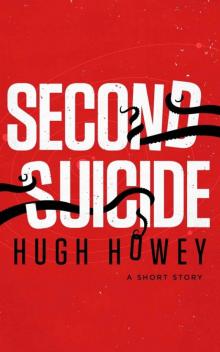 Second Suicide: A Short Story
Second Suicide: A Short Story Machine Learning: New and Collected Stories
Machine Learning: New and Collected Stories The Walk Up Nameless Ridge
The Walk Up Nameless Ridge Half Way Home
Half Way Home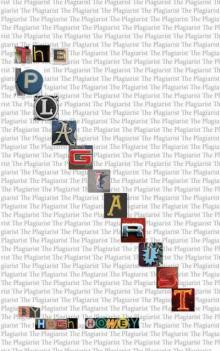 The Plagiarist
The Plagiarist Peace in Amber
Peace in Amber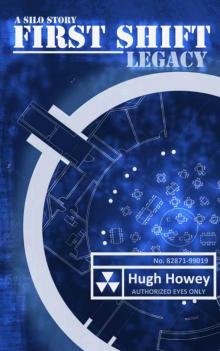 First Shift: Legacy
First Shift: Legacy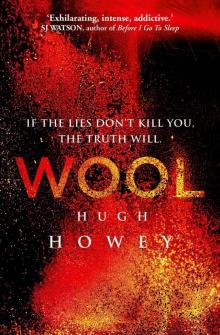 Wool
Wool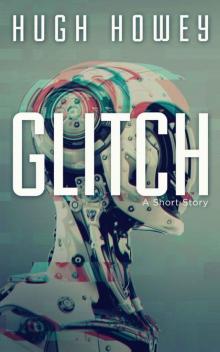 Glitch
Glitch Shift
Shift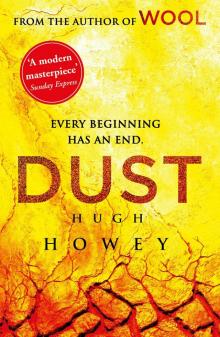 Dust
Dust Molly Fyde and the Land of Light
Molly Fyde and the Land of Light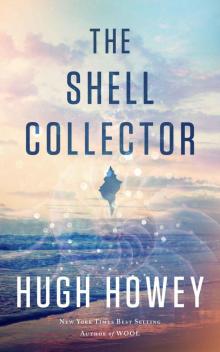 The Shell Collector
The Shell Collector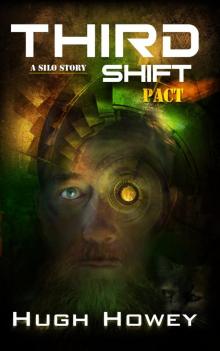 Third Shift: Pact
Third Shift: Pact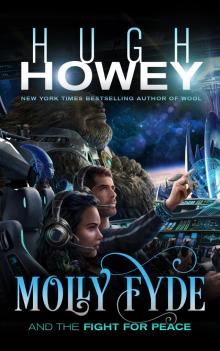 Molly Fyde and the Fight for Peace
Molly Fyde and the Fight for Peace Sand Omnibus
Sand Omnibus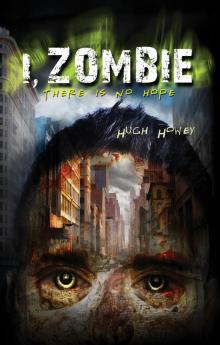 I, Zombie
I, Zombie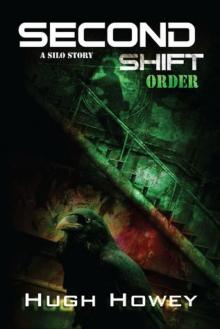 Second Shift: Order
Second Shift: Order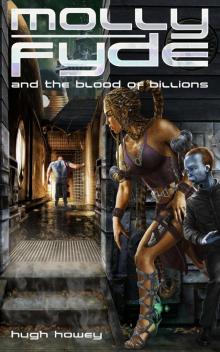 Molly Fyde and the Blood of Billions
Molly Fyde and the Blood of Billions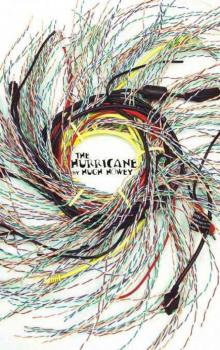 The Hurricane
The Hurricane The Box
The Box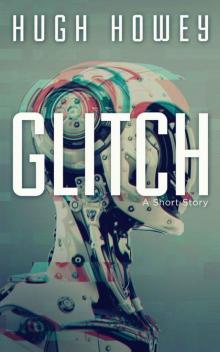 Glitch_A Short Story
Glitch_A Short Story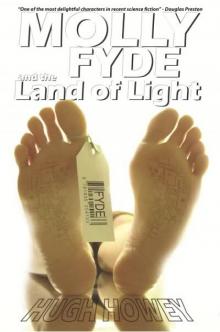 Molly Fyde and the Land of Light tbs-2
Molly Fyde and the Land of Light tbs-2 Machine Learning
Machine Learning Resist
Resist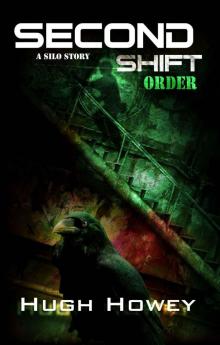 Second Shift - Order (Part 7 of the Silo Series) (Wool)
Second Shift - Order (Part 7 of the Silo Series) (Wool)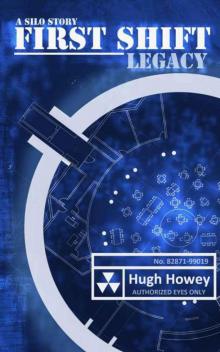 First Shift - Legacy s-1
First Shift - Legacy s-1 Stories on the Go: 101 Very Short Stories by 101 Authors
Stories on the Go: 101 Very Short Stories by 101 Authors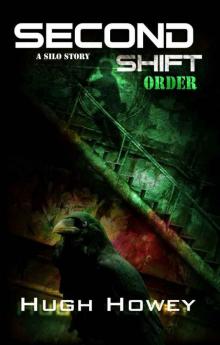 Second Shift - Order s-2
Second Shift - Order s-2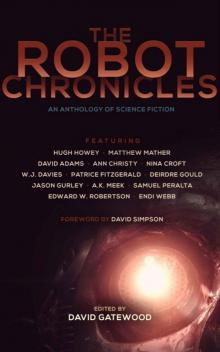 The Robot Chronicles
The Robot Chronicles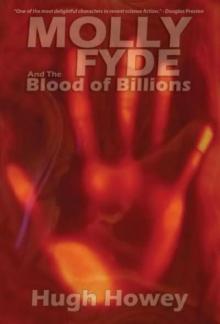 Molly Fyde and the Blood of Billions tbs-3
Molly Fyde and the Blood of Billions tbs-3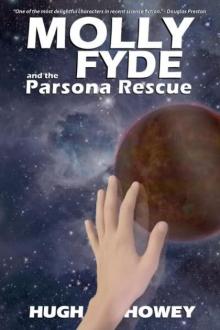 Molly Fyde and the Parsona Rescue tbs-1
Molly Fyde and the Parsona Rescue tbs-1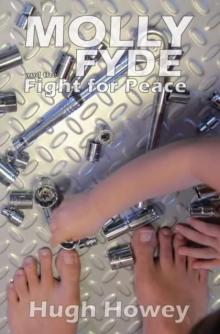 Molly Fyde and the Fight for Peace tbs-4
Molly Fyde and the Fight for Peace tbs-4 Sand
Sand The Walk Up Nameless Ridge (Kindle Single)
The Walk Up Nameless Ridge (Kindle Single) Wool Omnibus Edition (Wool 1 - 5)
Wool Omnibus Edition (Wool 1 - 5) The World of Kurt Vonnegut: Peace in Amber
The World of Kurt Vonnegut: Peace in Amber The Alien Chronicles
The Alien Chronicles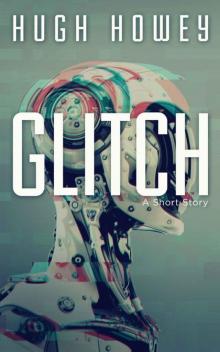 Glitch: A Short Story (Kindle Single)
Glitch: A Short Story (Kindle Single)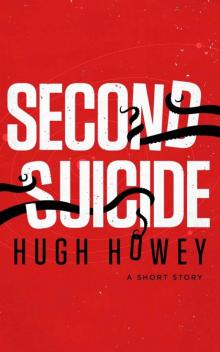 Second Suicide: A Short Story (Kindle Single)
Second Suicide: A Short Story (Kindle Single) Shift (silo)
Shift (silo)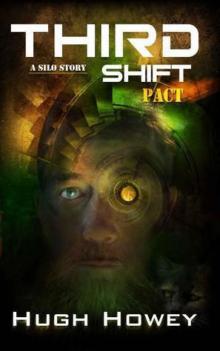 Third Shift - Pact
Third Shift - Pact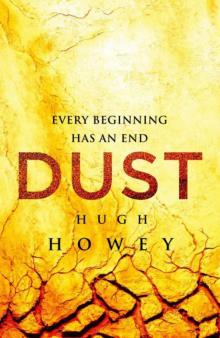 Dust s-9
Dust s-9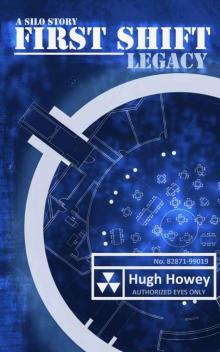 First Shift - Legacy (Part 6 of the Silo Series) (Wool)
First Shift - Legacy (Part 6 of the Silo Series) (Wool)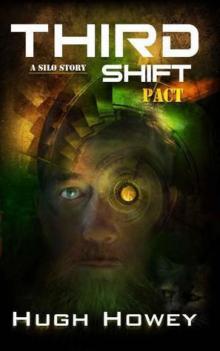 Third Shift - Pact s-3
Third Shift - Pact s-3 Sand: Omnibus Edition
Sand: Omnibus Edition The Box: A Short Story
The Box: A Short Story